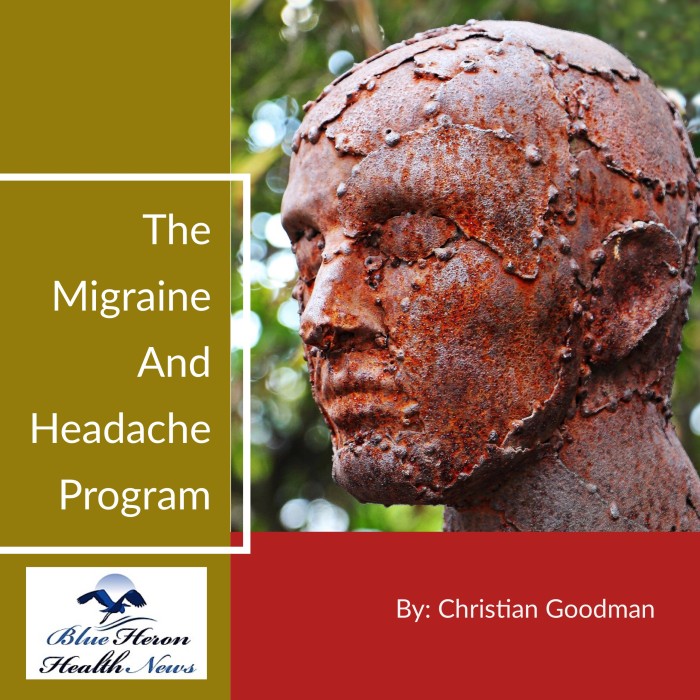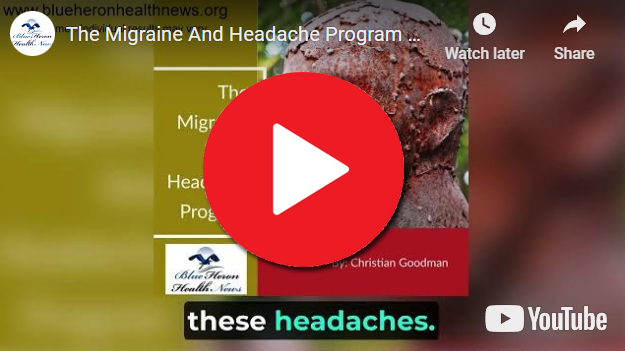
The Migraine And Headache Program By Christian Goodman This program has been designed to relieve the pain in your head due to any reason including migraines efficiently and effectively. The problem of migraine and headaches is really horrible as it compels you to sit in a quiet and dark room to get quick relief. In this program more options to relieve this pain have been discussed to help people like you.
How can one manage migraines caused by medication overuse?
Medication overuse headaches (MOH), also known as rebound headaches, occur when acute migraine medications are used too frequently, leading to a cycle of worsening headache symptoms and increased reliance on medication. Managing migraines caused by medication overuse involves breaking this cycle and finding alternative strategies for both treating and preventing migraines. Here’s how you can manage MOH:
1. Recognize the Signs of Medication Overuse
- Frequent Headaches: If you’re experiencing headaches more than 15 days per month and are regularly using acute migraine medications, you may be experiencing MOH.
- Increased Medication Use: Relying on pain relievers or migraine medications more than 2-3 times a week can lead to MOH.
- Short-Term Relief, Quick Recurrence: You may find that medications provide temporary relief but that headaches return soon after the effects wear off, leading to a cycle of frequent use.
2. Consult a Healthcare Provider
- Professional Diagnosis: It’s important to work with a healthcare provider to confirm the diagnosis of MOH and to develop an appropriate treatment plan. This may involve a neurologist or headache specialist.
- Tailored Plan: Your healthcare provider will tailor a treatment plan based on the specific medications you’ve been using, the frequency of your headaches, and your overall health.
3. Medication Withdrawal
- Gradual Tapering: In some cases, your healthcare provider may recommend gradually tapering off the overused medication to minimize withdrawal symptoms and prevent rebound headaches. This is typically done with medications like opioids, barbiturates, or caffeine-containing drugs.
- Abrupt Discontinuation: For some medications, especially those without significant withdrawal risks (like triptans or simple analgesics), an abrupt discontinuation may be recommended. However, this should be done under medical supervision.
4. Alternative Medications During Withdrawal
- Preventive Medications: To manage migraines during the withdrawal period, your healthcare provider may prescribe preventive medications such as beta-blockers, anticonvulsants, or antidepressants. These medications are taken daily to reduce the frequency and severity of migraines.
- Bridge Therapy: In some cases, “bridge” therapy may be used to help manage headache symptoms during withdrawal. This might include short-term use of corticosteroids, anti-nausea medications, or non-medication options like nerve blocks.
5. Non-Medication Strategies
- Behavioral Therapy: Cognitive-behavioral therapy (CBT) and other behavioral therapies can be highly effective in managing migraines, especially when dealing with medication overuse. CBT can help you develop coping strategies, manage stress, and change patterns of behavior that contribute to medication overuse.
- Biofeedback and Relaxation Techniques: Biofeedback helps you learn to control physiological functions like muscle tension and blood flow, which can reduce headache frequency. Relaxation techniques, such as deep breathing, progressive muscle relaxation, and meditation, can also be beneficial.
- Physical Therapy: Physical therapy can help address muscle tension and improve posture, particularly if neck or shoulder strain contributes to your migraines.
6. Identify and Avoid Triggers
- Migraine Diary: Keeping a migraine diary to track potential triggers (such as certain foods, stress, sleep patterns, or environmental factors) can help you identify and avoid situations that may precipitate migraines.
- Consistent Routine: Establishing a regular sleep schedule, eating regular meals, staying hydrated, and managing stress can help prevent migraines without the need for frequent medication use.
7. Preventive Treatment
- Long-Term Preventive Medications: If you’re prone to frequent migraines, your healthcare provider may recommend long-term preventive medications. These are different from acute medications and are taken daily to reduce the likelihood of migraines.
- Botox Injections: For chronic migraines, Botox injections may be an option. Botox is administered every 12 weeks and has been shown to reduce the frequency of migraine attacks in some individuals.
8. Gradual Reintroduction of Acute Medications
- Restricted Use: Once medication overuse is addressed, you may be able to reintroduce acute migraine medications, but with strict limits on frequency. Generally, it’s recommended to use acute medications no more than 2-3 times per week to avoid triggering MOH again.
- Alternating Medications: Your healthcare provider may recommend alternating different types of acute medications to reduce the risk of overusing any single type.
9. Educate Yourself About Medication Use
- Understand Risks: Learning about the risks of medication overuse and how to properly use migraine medications can help prevent future episodes of MOH.
- Alternative Therapies: Explore alternative therapies, such as acupuncture, chiropractic care, or supplements like magnesium and riboflavin (vitamin B2), which have been shown to help prevent migraines in some individuals.
10. Regular Follow-Up
- Monitor Progress: Regular follow-up appointments with your healthcare provider are important to monitor your progress, adjust treatment plans, and address any new or ongoing concerns.
- Ongoing Support: Managing migraines, especially after MOH, requires ongoing support. Consider joining a support group or seeking counseling if you find it difficult to manage migraines on your own.
Conclusion
Managing migraines caused by medication overuse involves breaking the cycle of frequent medication use, addressing withdrawal symptoms, and finding alternative treatment strategies. A combination of medication management, non-medication therapies, and lifestyle changes can help reduce migraine frequency and prevent future episodes of medication overuse headaches. Working closely with a healthcare provider is crucial to ensure a safe and effective transition away from overused medications and toward more sustainable migraine management strategies.

The Migraine And Headache Program By Christian Goodman This program has been designed to relieve the pain in your head due to any reason including migraines efficiently and effectively. The problem of migraine and headaches is really horrible as it compels you to sit in a quiet and dark room to get quick relief. In this program more options to relieve this pain have been discussed to help people like you.